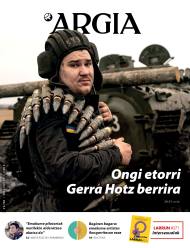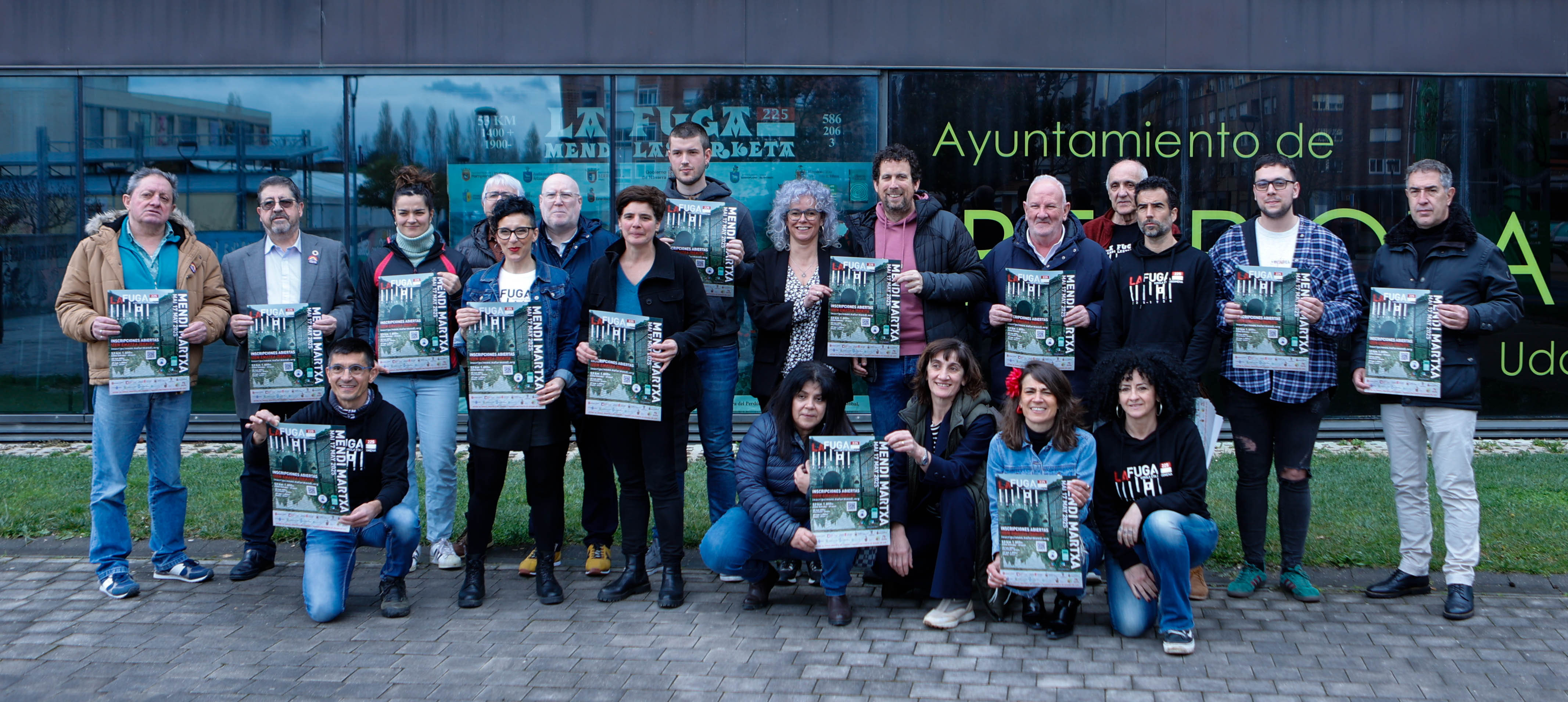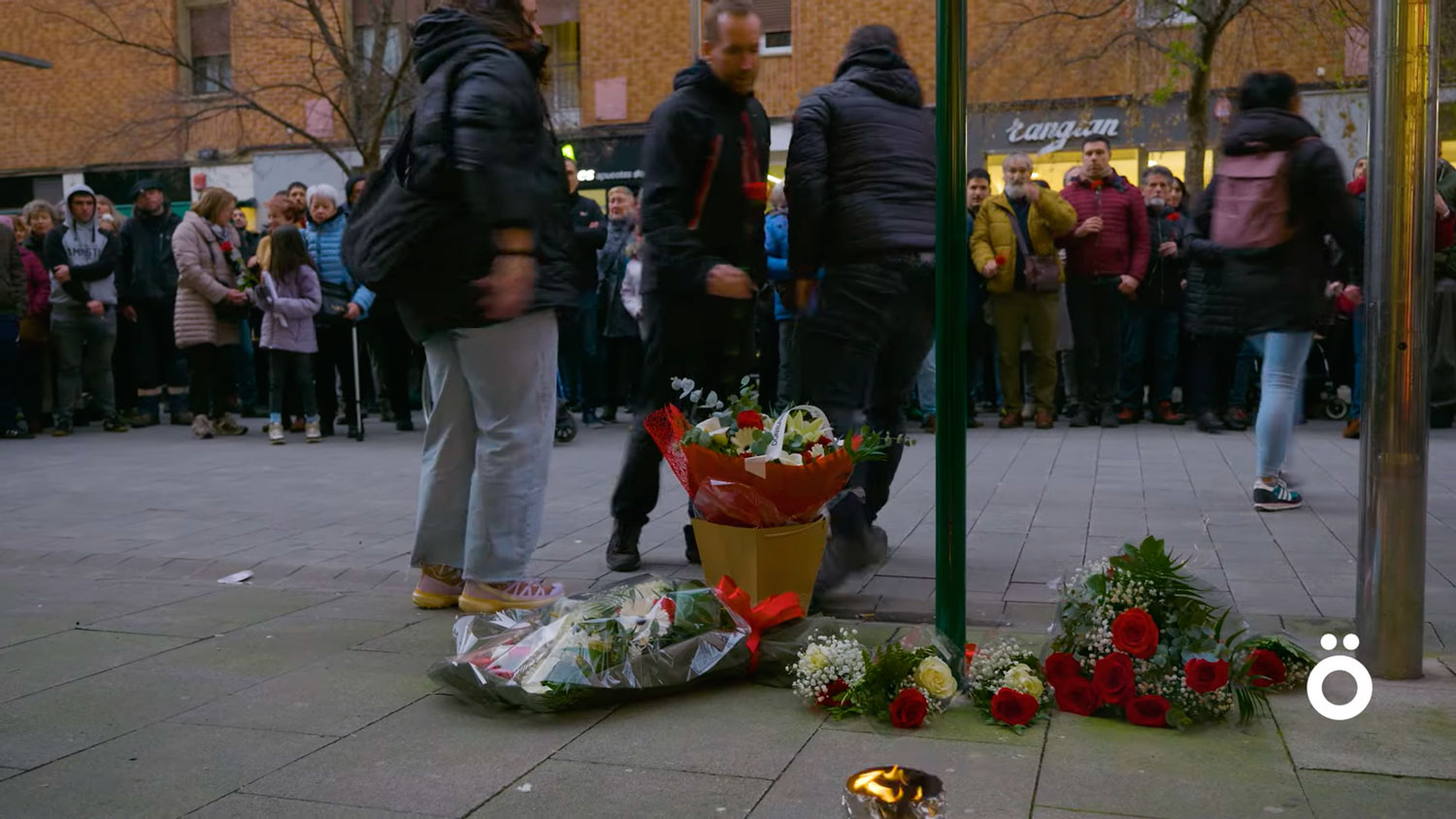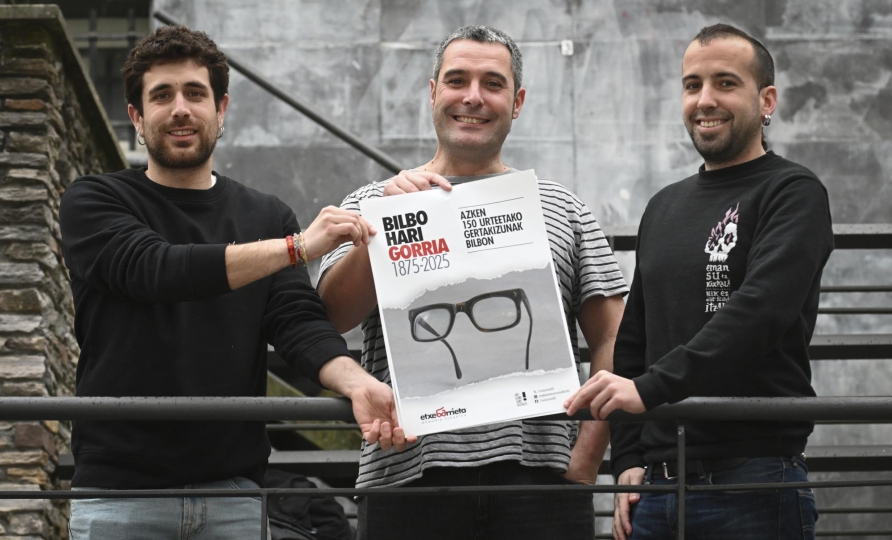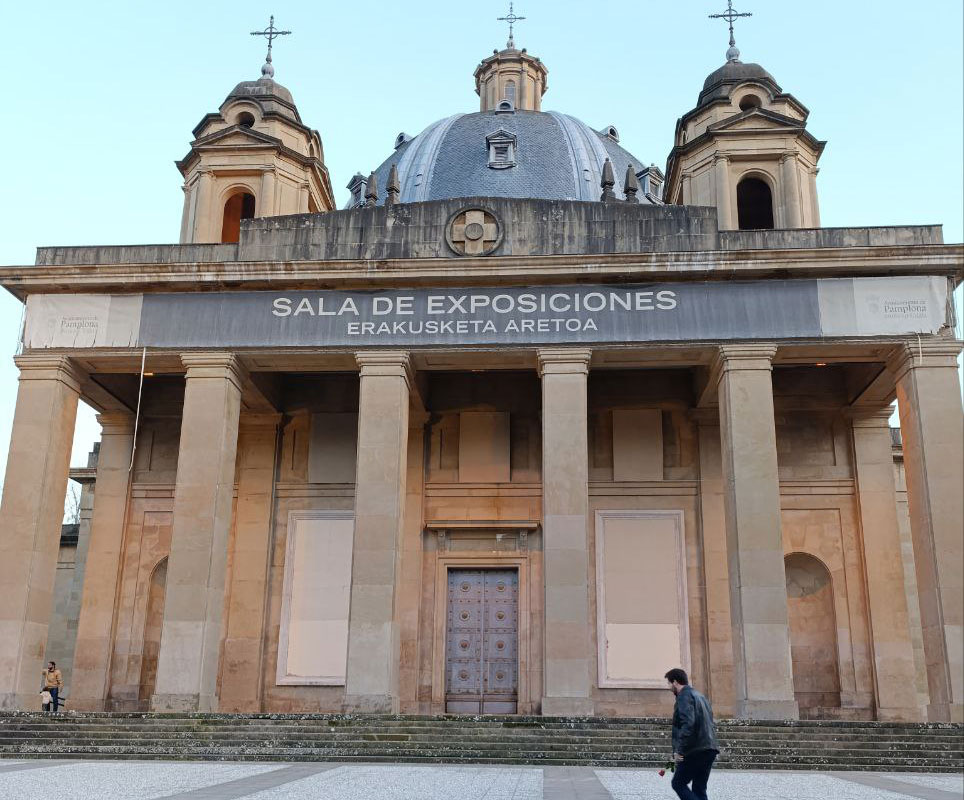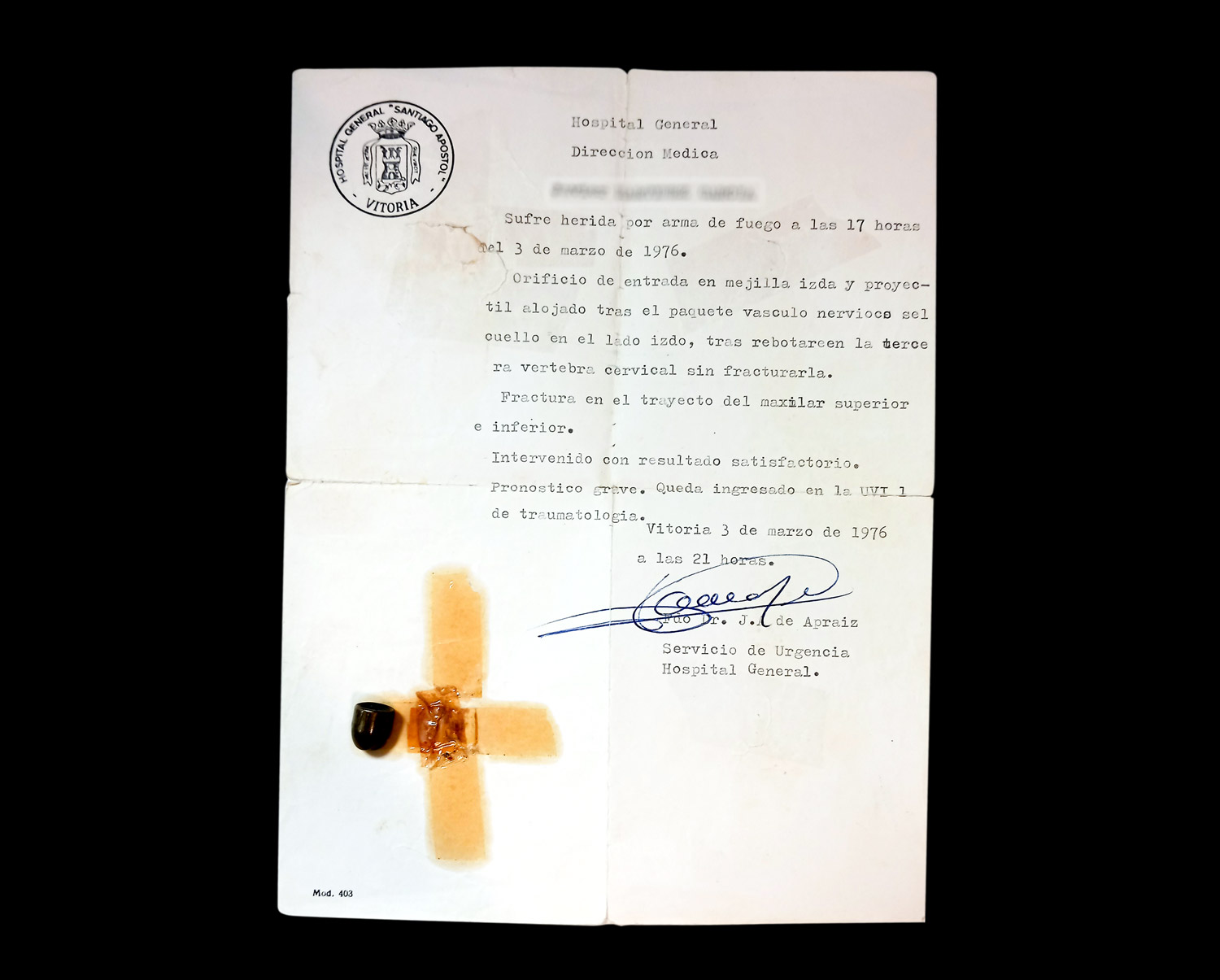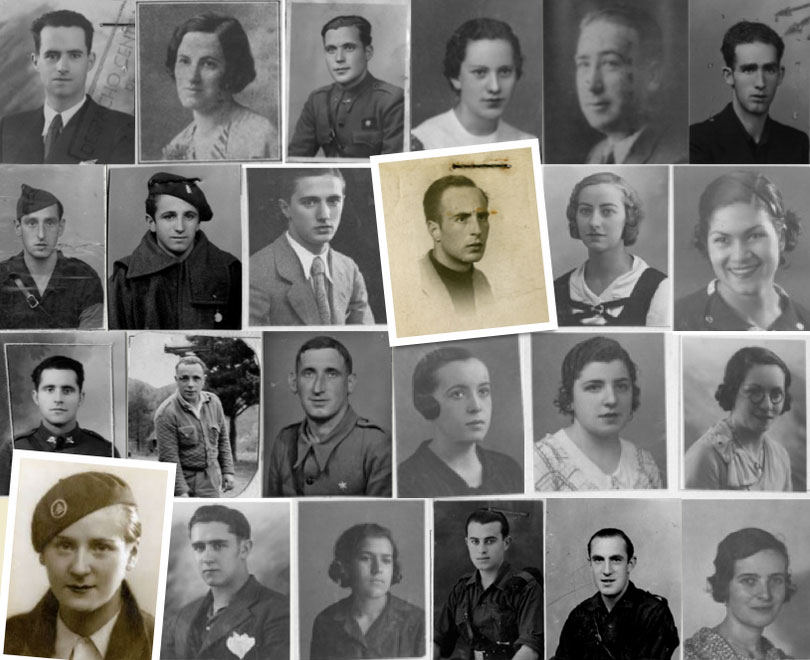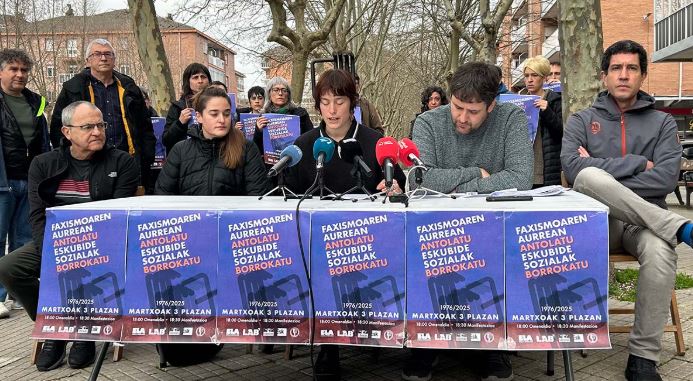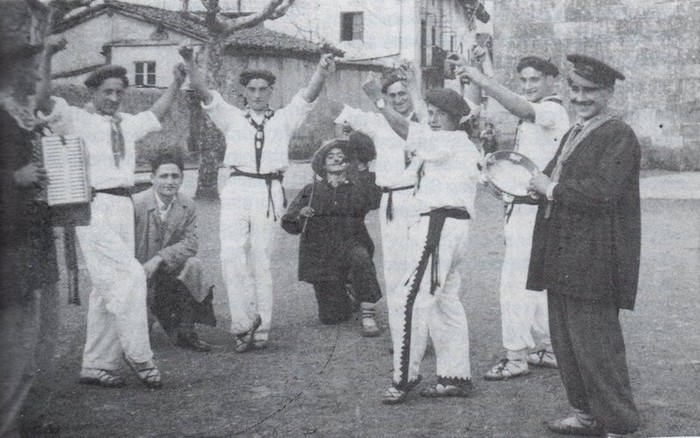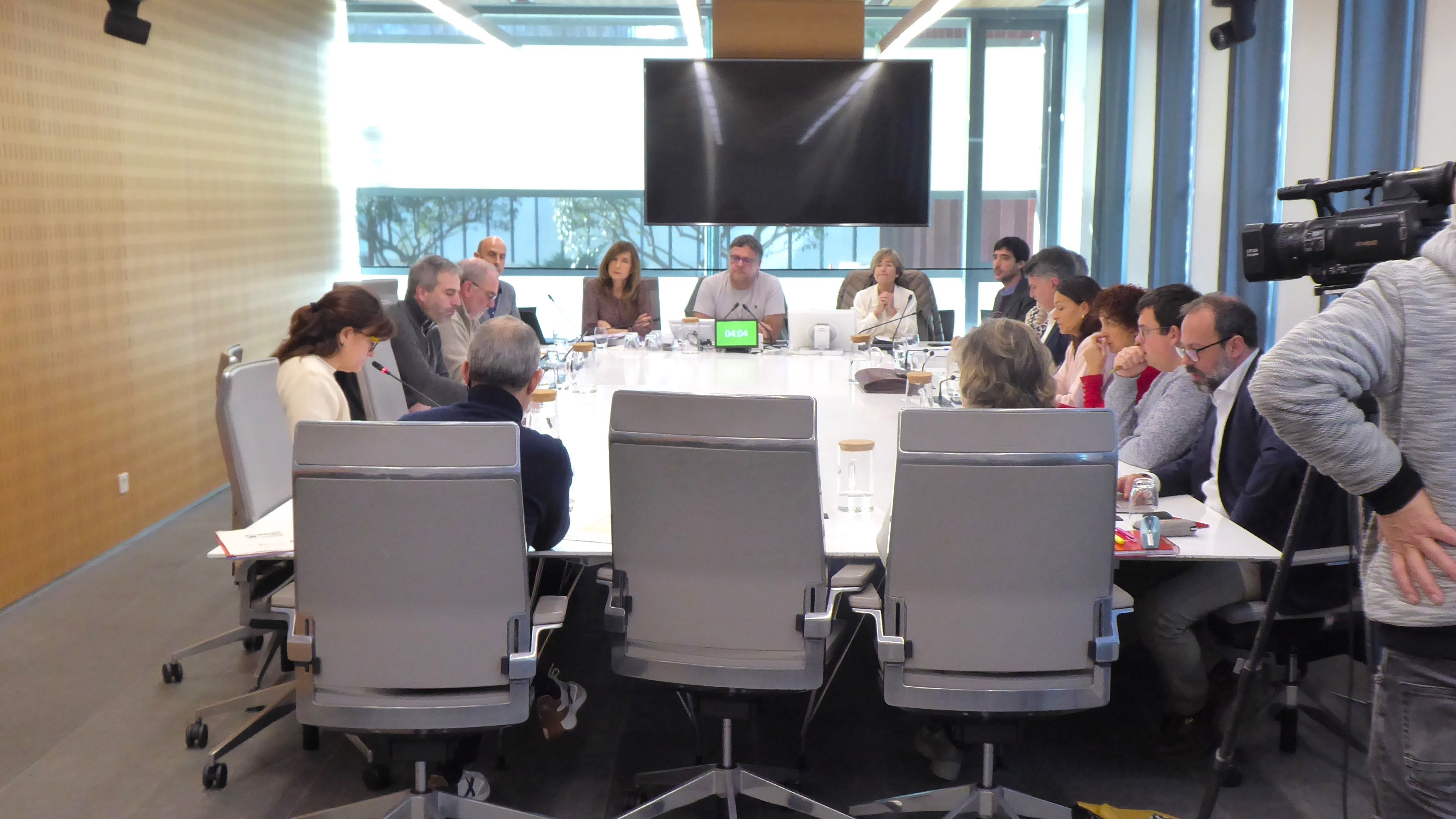"A hundred years ago the four deputies were in Amaiur, I don't know if they will come this year"
- The Association of Castles of Amaiur received the Sabino Arana award in January. The trophy was picked up by Isabel Alemán, town councilor and member of the association. In 1982, when they received the monument showing the castle, there was Isabel, an expert and a direct witness.

The Association of Castles of Amaiur has received the Sabino Arana award...
We have received the recognition enthusiastically. The first monument was praised a hundred years ago by Arturo Campión. It was the intention of the Committee on Monuments in Navarre, where the four deputies were involved, not only in Navarre. In addition, it was at the gates of a war, when people were intuiting their identity. They wanted to state that in Amaiur four hundred years before they had wounded our identity, they did not want to stop it. The monolith was exalted, and thanks to it came the creation of the association in 1982 and later. The prize has been a recognition of the road travelled over the last hundred years. A hundred years ago the four Members were here, and I do not know if they will all come this year. At least we will invite them.
When will you have the event?
16 July. Five years ago, those who came to slavery from the war in Noáin, fortified in the castle of Amaiur. They lasted the year in the castle. The battle took place from 15 to 19 and was finally claudicated on 19, seeing that they could do nothing, since they were 200 or more. At least Lauaxeta says it like this: “Two hundred gudaris in sumin”… First he sang Antton Valverde, but I also really like how Petti sings, it is more modern.
When he received the prize, he said that 40 years ago you were in an event held in the castle.
Yes. We live in parallel to the castle [the houses Makitenea and Mendialdea], and I have a memory, movement of people around the castle. They were young, they were climbing up the monument. Until then, I think I never was in this castle, although processions were made at the Corputz festivities. The priest was sure to be a nationalist. The Castle of Amaiur Association was born in 1978 with the intention of extolling the monument. I was then 13-14 years old. I wanted to go out, through the town celebrations. Maybe I only saw a party atmosphere around the castle. And at home, my grandfather [Gerardo Irungarai] didn't feel comfortable chatting with the castle. I was a walking mayor, I had no studies, but it was very clear: I picked up the books of our school and everybody -- especially those of history -- and I read them.
What memories do you have of that day?
I remember what my mom told me. “Attention. Politicians have to come and it's going to be fucking. Attention, attention!” It was the biggest mass here, in the castle, and we came here to the parade. That time he read every Sunday in the church, in the Mass Elder. I remember people! First in the village, where Carlos Garaikoetxea arrived, he was in a big black car. I was at the door of a Amatxi's brother's house, and they pulled the car right there. And ordering people to reject it. “But this, what is this?” A tremendous intrigue. I had never seen so many people in Amaiur. I came to the Castle and Timothy Square was then mayor of the valley, and as I read in the Mass older people, well dressed, costume and boneta, a man came to me and said: “How well you read!” and I am proud! “So you have to read, the Yainco, not the god!” I loved seeing people like this, and I did. “But how important this place is! ?”.
.jpg)
Talk about the castle and say it wasn't comfortable for your dad.
Yes. My grandfather didn't want to tell anything, but that same thing aroused interest within us. “Why don’t you want to count?” The same was true for amatxi [Juanita Inda]. It was more dialoguing, but there were many sufferings in school through language, disqualified, because they didn't know Spanish. In the village, at that time, it had the civilian guards’ barracks; in the other, in the Agerre house, the military; in the hostel of the plaza, also the military… For a while, in Amaiur, there were 200 civil and military guards. All in Spanish. Everybody. The lack of knowledge of Castilian caused suffering to the people. We've always talked at home in Basque, but my mother said: “What is the Basque for? It’s not worth more than Belate!” And on the contrary, when she sings in Basque, she knew that she loved her language. It was also clear that he suffered.
What would Amaiur be without this castle?
I would compare it to any other small town outside the Baztan road. It would be a town with few movements, with a common neighborhood atmosphere. We're 250 people in Amaiur, scattered, in the hull and in the hull. We need accommodation, a place of socialization, where we meet people of all ages. “We already have it,” I said, but I would have had to say, “we have had it,” because now Luisa, the owner of the bar, is going to retire, and therefore we have this rush to assemble something somewhere else, because we will be left without room to socialize.
"They left me with a clear idea of liberation. ‘You don’t have to work to save anyone’s life. You are not powerless, you do not have to be powerless.”
What would you be if you were not Amaiur? We've been through El Salvador...
I've made my life in Amaiur. I'm a midwife, the castle has nothing to do with my work. On the other hand, it is true that I was in El Salvador, and perhaps if it were not in Amaiur, I would be in the NGO environment. I was in El Salvador in the early 1990s, for six months. That world attracted me. I mean, let's help myself in some country outside. When studying nursing, I was doing the practices of the last year in the hospital of Pamplona, I met a doctor in the traumatology plant. Pello Goiatxe was one of the Doctors Without Borders. He was wounded in the war in El Salvador, even left dead, but abroad, and they moved and managed to evacuate. He was brought in and was admitted to the hospital in Pamplona for a month. I, as a nursing student, was always willing: “You practice with me!” I was twenty years old and he put me in my head. “I also have to do something like this!” I became a friend of Pello, and so I contacted Askapena.
And you were in El Salvador for six months, as you said before. In what sense?
I was in the clinic of a community, helping to organize the pharmacy and store, in the canton Guarjila of the department of Chalatenango. And there was Jon Cortina. [Ignacio] Ellakuria and seven other recently deceased people [November 1989], when I was here. They were killed at the end of the war, and I went the following year, in the first election phase, because I was an observer. I have a passage there, vulgar pollite…
We need you to tell us.
On a Sunday I'm quiet and a man appeared. I think it came with another one, which was not alone. He asked me. “Hey, Dad Jon Cortina?” And I would say to him, “Mass is being celebrated, but fite is going to run out and it will come,” because I was next to Jon Cortina’s house. We started talking. I realized it wasn't from there, and it wasn't from El Salvador either. And from the conversation, we knew that we were both Navarros, and he asked which country he belonged to. He talked to him about Navarra Norte, “Baztango”. “Who has to meet Amaiur!” I thought. “Which country?” however, he asked me, and I did, that it was from Amaiur. “Oh, yeah? Well, I know one in Amaiur.” “Which?” I, and he: “Felixa, de Mendialdea”. And I: “Well, I, your daughter!” Koldo Katxo was a Jesuit. Since then, I have been given the Latin American agenda every year. Annual.
He was twenty years old when he went to El Salvador. What was your intention?
I went to help, thinking I could contribute something. When I got there, I realized that I could give them little, but they could give me a lot. The very meaning of life. Because their philosophy is, be it and be a child. “Why so many children?” I, and they: “What do they die to?” Or the massacres of women with replacement, by a man! And sometimes they valued myself. Another culture. Because of the women’s setbacks, the moments when they alone met to work… they deformed, they felt free. At home it was possible.
However, it was enfermera.En as
far as the vision of the nurse, I saw that the diseases we have here absolutely dominated still greatly limit everyday life. Don't have an egg every day, or a proper protein! Or vaccines! But the vaccine, not now that of the coronavirus, but that of measles, or tetanus -- the ones we have long left behind. And what interests are there so they don't have those vaccines. Or why the institutions do nothing else.
.jpg)
"The lack of knowledge of Castilian caused suffering to the people. We've always talked at home in Basque, but my mother said: “What is the Basque for? It’s not worth more than Belate!”
There we are always with the 0.7 and it does not bleach…
The family had the accommodation of Amaiur, a businessman came there once and learned that I was in El Salvador. He said to our mother, “I want to send me money.” And he sent me, as he said: “Take what you need from you and manage the rest there.” In Guarjilla there were malnourished children. It is curious, because there I also started to value breastfeeding. I saw that the kids died when they stopped breastfeeding, because they had no other food. “The mother’s breast, the child’s food,” as the song says. While breastfeeding, they were guaranteed to stay alive. With that entrepreneur's money, we bought so many eggs, we got milk -- very well toasted -- and a few children were able to come to the clinic to eat a glass of milk and a cooked egg.
You talk about “a lot of days.” And after that bunch of days?
The money was exhausted and nothing. It wasn’t just a patch… But I got a clear idea from Askapena: “You don’t have to work there to save anyone’s life. You're not powerless, you don't have to be force majeure. In case they bring something to them, their contribution should be a way for them to then go on their own in the path you have marked.” In my case, there were not nurses there, but health promoters.
What is the “health promoter”? They were
village girls, who knew how to read and write exactly – the erneas, who lived during the war era – and who had to learn to work as nurses together with Pello Goiatxe. These health promoters, these girls, did what I had never done: they were in amputations, in operations loaded with shrapnel… we taught them the aseptic measures, because we taught them their hands. That's why they called me the path in Liberation, we trained them, we trained them to continue working. Then the government funds began to arrive here, the salaries for those promoters, and so on. What did they spend the money on? Buying a TV, for example. But they didn't even have to buy milk and egg a month! And we asked them. “But how do you spend your money buying television?” “Ah! We want to be like you!” Enormous contradictions emerged in El Salvador.
Mendialde etxean sortua. Erizaina izana, emagina du espezialitatea. Iruñeko ospitalean eta Baztanen ari da lanean. El Salvadorren Askapenarekin egona da 1990ean. Gaztelu elkarteko kide da, eta Amaiurko zinpeko alkate iazko Errege egunaz gero. “Gaztelua auzolanez, herria eginez” ageri du herriko karrika nagusiko etxe batean, eta halaxe azpimarratu digu: “Sabino Arana saria herriarendako da. Elkartearen gibelean Amaiurko herria ez balitz, ez zen deus izanen. Elkartea tresna hutsa da”.
Kirola eta oroimena uztartuko dituzte, bigarrenez, mendi-martxa baten bitartez. Ez da lehiakorra izanen, helburua beste bat delako. La Fuga izeneko mendi martxak 1938ko sarraskia gogorarazi nahi du. Ezkabako gotorlekuan hasi eta Urepelen amaituko da. Maiatzaren 17an eginen dute.
Fusilamenduak, elektrodoak eta poltsa, hobi komunak, kolpismoa, jazarpena, drogak, Galindo, umiliazioak, gerra zikina, Intxaurrondo, narkotrafikoa, estoldak, hizkuntza inposaketa, Altsasu, inpunitatea… Guardia Zibilaren lorratza iluna da Euskal Herrian, baita Espainiako... [+]
Gogora Institutuak 1936ko Gerrako biktimen inguruan egindako txostenean "erreketeak, falangistak, Kondor Legioko hegazkinlari alemaniar naziak eta faxista italiarrak" ageri direla salatu du Intxorta 1937 elkarteak, eta izen horiek kentzeko eskatu du. Maria Jesus San Jose... [+]
Familiak eskatu bezala, aurten Angel oroitzeko ekitaldia lore-eskaintza txiki bat izan da, Martin Azpilikueta kalean oroitarazten duen plakaren ondoan. 21 urte geroago, Angel jada biktima-estatus ofizialarekin gogoratzen dute.
Bilbo Hari Gorria dinamikarekin ekarriko ditu gurera azken 150 urteetako Bilboko efemerideak Etxebarrieta Memoria Elkarteak. Iker Egiraun kideak xehetasunak eskaini dizkigu.
33/2013 Foru Legeari Xedapen gehigarri bat gehitu zaio datozen aldaketak gauzatu ahal izateko, eta horren bidez ahalbidetzen da “erregimen frankistaren garaipenaren gorespenezkoak gertatzen diren zati sinbolikoak erretiratzea eta kupularen barnealdeko margolanak... [+]
1976ko martxoaren 3an, Gasteizen, Poliziak ehunka tiro egin zituen asanbladan bildutako jendetzaren aurka, zabalduz eta erradikalizatuz zihoan greba mugimendua odoletan ito nahian. Bost langile hil zituzten, baina “egun hartan hildakoak gehiago ez izatea ia miraria... [+]
Memoria eta Bizikidetzako, Kanpo Ekintzako eta Euskarako Departamentuko Memoriaren Nafarroako Institutuak "Maistrak eta maisu errepresaliatuak Nafarroan (1936-1976)" hezkuntza-webgunea aurkeztu du.









